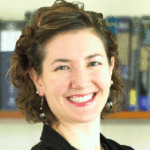Is Whole Exome Sequencing the Future of Kidney Stone Management?
Is Whole Exome Sequencing the Future of Kidney Stone Management? https://pediatricsnationwide.org/wp-content/themes/corpus/images/empty/thumbnail.jpg 150 150 Katie Brind'Amour, PhD, MS, CHES Katie Brind'Amour, PhD, MS, CHES https://pediatricsnationwide.org/wp-content/uploads/2021/03/Katie-B-portrait.gif- April 02, 2018
- Katie Brind'Amour, PhD, MS, CHES
The first use of whole exome sequencing for monogenic causes of kidney stone disease reveals the diagnostic tool is ripe for clinical application.
In the first-ever study of whole exome sequencing for early-onset kidney stone disease, an international team of researchers led by clinician-scientists at Boston Children’s Hospital expanded on their prior finding that many early-onset cases have a single-gene (monogenic) cause. The team’s latest study identified seven novel mutations in genes known to cause kidney stone disease and changed the course of clinical management for 60 percent of the participating families in whom a monogenic cause was detected.
“For patients with recurrent stones, a severe phenotype, familial disease or early onset disease, I would highly recommend whole exome sequencing,” says Ankana Daga, MD, clinical fellow of pediatric nephrology at Boston Children’s and lead author on the study, published in Kidney International. Unlike kidney stone gene panels, whole exome sequencing looks at the patient’s entire genetic background. “You’ll be surprised at what you find and how that could change management of these patients.”
Among families with kidney stone disease onset at less than 25 years of age who underwent whole exome sequencing, the study detected monogenic disease-causing mutations in nearly 30 percent (15 of 51 families). The team identified 19 total mutations in seven recessive genes, one dominant gene and one gene with both inheritance characteristics. Seven of the identified mutations were not previously known to cause disease. They also found a causative mutation in one of what may be 117 possible phenocopies of nephrolithiasis-causing genes.
“Nine of the 15 families in our cohort with a monogenic disease cause benefitted from the genetic findings,” says Dr. Daga. “The new information allowed their clinicians to better care for them either through preventative or therapeutic measures.” The remaining families were already being appropriately managed for their underlying cause of disease.
“These findings may ultimately have a profound impact on clinical care,” says John David Spencer, MD, a nephrologist at Nationwide Children’s Hospital and principal investigator in the hospital’s Center for Clinical and Translational Research. “Results from whole exome sequencing could alter daily medical or dietary management, enable more effective monitoring or prevention of potential systemic complications, and allow the creation of a screening framework for family members at risk for disease.”

Prior to broader implementation of whole exome sequencing — which is considerably more expensive than panel sequencing — Dr. Daga and the project’s principal investigator, Friedhelm Hildebrant, MD, chief of nephrology at Boston Children’s, plan to use the technology to investigate novel single-gene causes of nephrolithiasis and its pathogenesis to aid the development of targeted therapy for each patient.
“Our hope is that with more data presenting the potential of the technology for kidney stone disease management, it will become a feasible and common clinical assessment for all patients,” Dr. Daga says.
Reference:
Daga A, Majmundar AJ, Braun DA, Gee HY, Lawson JA, Shril S, Jobst-Schwan T, Vivante A, Schapiro D, Tan W, Warejko JK, Widmeier E, Nelson CP, Fathy HM, Gucev Z, Soliman NA, Hashmi S, Halbritter J, Halty M, Kari JA, El-Desoky S, Ferguson MA, Somers MJG, Traum AZ, Stein DR, Daouk GH, Rodig NM, Katz A, Hanna C, Schwaderer AL, Sayer JA, Wassner AJ, Mane S, Lifton RP, Milosevic D, Tasic V, Baum MA, Hildebrandt F. Whole exome sequencing frequently detects a monogenic cause in early onset nephrolithiasis and nephrocalcinosis. Kidney International. 2017 Sep 8. [E-pub ahead of print.]
Image credit: Nationwide Children’s (infographic)
About the author
Katherine (Katie) Brind’Amour is a freelance medical and health science writer based in Pennsylvania. She has written about nearly every therapeutic area for patients, doctors and the general public. Dr. Brind’Amour specializes in health literacy and patient education. She completed her BS and MS degrees in Biology at Arizona State University and her PhD in Health Services Management and Policy at The Ohio State University. She is a Certified Health Education Specialist and is interested in health promotion via health programs and the communication of medical information.
-
Katie Brind'Amour, PhD, MS, CHEShttps://pediatricsnationwide.org/author/katie-brindamour-phd-ms-ches/April 27, 2014
-
Katie Brind'Amour, PhD, MS, CHEShttps://pediatricsnationwide.org/author/katie-brindamour-phd-ms-ches/April 27, 2014
-
Katie Brind'Amour, PhD, MS, CHEShttps://pediatricsnationwide.org/author/katie-brindamour-phd-ms-ches/April 27, 2014
-
Katie Brind'Amour, PhD, MS, CHEShttps://pediatricsnationwide.org/author/katie-brindamour-phd-ms-ches/April 28, 2014
- Posted In:
- In Brief





